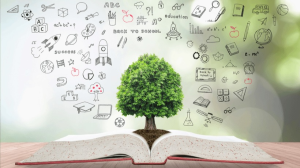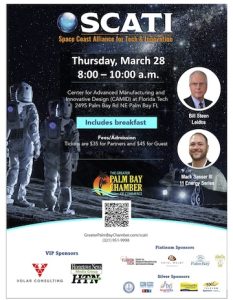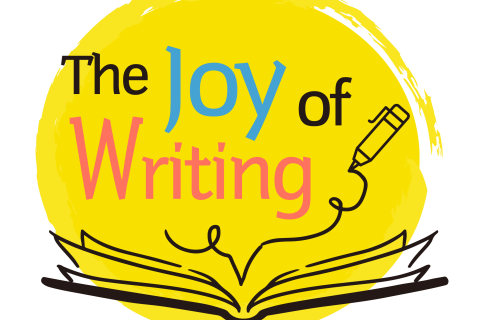 History was the present and the reality of thousands of generations, countries, systems, dynasties, and billions of people who lived in conditions very different from those we live in today. We can perceive and learn history through places that have survived time, climate, the treatment of man and his inventions, and other factors that could end with legacies of knowledge, discoveries, and sometimes, damage to the human race and the planet.
History was the present and the reality of thousands of generations, countries, systems, dynasties, and billions of people who lived in conditions very different from those we live in today. We can perceive and learn history through places that have survived time, climate, the treatment of man and his inventions, and other factors that could end with legacies of knowledge, discoveries, and sometimes, damage to the human race and the planet.
Some of those places that have remained and continue to show us their greatness are the seven wonders of the world (to give one of many examples): The Great Wall of China, the Chichen Itza Pyramid in Mexico, Petra in Jordan, Machu Picchu in Peru, Christ Redeemer in Brazil, the Roman Colosseum and Taj Mahal in India. Surely, there will be many others, but we will only mention these because of their extraordinary impetus, symbolism, history, and recognition of thousands of generations that have passed through there.
In addition to highlighting places like these, we can mention events that have changed the history of humanity, such as the World Wars, the Industrial Revolution, inventions such as the light bulb, the printing press, the steam engine, or geo-political movements such as the dissolution of the former Soviet Union, the independence of the United States, Apartheid, Latin American Independence Processes, Napoleonic Wars, among others and more recently we can mention 9/11 or the Covid-19 crisis.
All these events, places, and evidence that show their importance and impact on humanity invite us to look for reliable sources to learn and recognize what has happened in the past so as not to repeat it. As the Spanish philosopher Jorge Agustín Nicolás Ruiz de Santayana y Borrás, who lived during the 19th and 20th centuries, would say: “He who does not know his history is condemned to repeat it.”
For many people, history is a subject that is studied in school and stays there. However, making a parallel example, if someone remembers transcendental events in their life and uses them for their benefit and learning, many of those effects will have a positive and permanent impact.
We are all the product of past actions of our family members or close people and, of course, of what we have done ourselves. What we did yesterday will be reflected in the present and in the future. Do you know the history of your country, where the culture and other social behaviors that we have today come from, and closer still, do you have in mind the history of your family and the legacy that they have left in yourself?
Knowing history will strengthen the actions of today, tomorrow, and future generations. Build your future knowing your history, and that of your environment!
Tenemos que conocer nuestro Pasado / Porque el pasado define nuestro futuro
La historia fue el presente y la realidad de miles de generaciones, de países, de sistemas, de dinastias y de billones de personas que vivían en condiciones muy distintas a las que vivimos hoy.
La historia la podemos percibir y aprender a través de lugares que han sobrevivido al tiempo, al clima, al trato del hombre y sus inventos y otros factores que pudieron terminar con legados de conocimiento, descubrimientos y a veces, de daños para la raza humana y el planeta.
Algunos de esos lugares que se han mantenido y siguen mostrándonos su grandeza son las siete maravillas del mundo (para dar uno de tantos ejemplos): La Gran Muralla China, la Pirámide Chichen Itzá en México, Petra en Jordania, Machu Picchu en Perú, Cristo Redentor en Brasil, el Coliseo Romano y Taj Mahal en India. Seguramente habrán muchos otros, pero solos mencionaremos estos por su extraordinario ímpetu, simbolismo, historia y reconocimiento de miles de generaciones que pasaron por ahí.
Además de destacar lugares como estos podemos mencionar eventos que han cambiado la historia de la humanidad, como las Guerras Mundiales, la Revolución Industrial, inventos tales como el bombillo, la imprenta, la máquina de vapor, o movimientos geo-políticos como la disolución de la antigua Unión Soviética, la independencia de Estados Unidos, la Apartheid, Procesos Independentistas Latinoamericanos, Guerras Napoleónicas, entre otros y más recientemente podemos mencionar el 9/11 o la crisis del Covid-19.
Todos estos eventos, lugares y evidencias que muestran la importancia e impacto que han tenido para la humanidad nos invitan a buscar fuentes confiables para aprender y reconocer lo que ha sucedido en el pasado para no repetirlo. Como diría el filósofo Español Jorge Agustín Nicolás Ruiz de Santayana y Borrás, quien vivió durante los siglos XIX y XX: “Quien no conoce su historia está condenado a repetirla”.
Para muchas personas la historia es una materia que se estudia en el colegio y se queda allí; sin embargo, haciendo un ejemplo paralelo, si alguien recuerda eventos trascendentales de su vida y los usa para su beneficio y aprendizaje, muchos de esos efectos impactarán positiva y permanentemente.
Todos somos el producto de acciones pasadas de nuestros familiares o personas cercanas y por supuesto, de lo que hemos hecho nosotros mismos. Lo que hicimos ayer, se reflejará en el presente y en el futuro.
Sabe Usted la historia de su país, de donde viene la cultura y demás comportamientos sociales que tenemos hoy, y más cerca aún, tiene Usted presente la historia de su familia y el legado que han dejado ellos en Usted mismo?
Saber la historia fortalecerá las acciones de hoy y de mañana y las de generaciones venideras. Construya su futuro sabiendo su historia y la de su entorno!

Contributing Writer,
Carolina Rojas-Gee is the Marketing and Communications Director for the Greater Palm Bay Chamber of Commerce and works with the Multicultural Networking Group to strengthen this community. She is originally from Colombia, which makes this experience more exciting and relevant.







